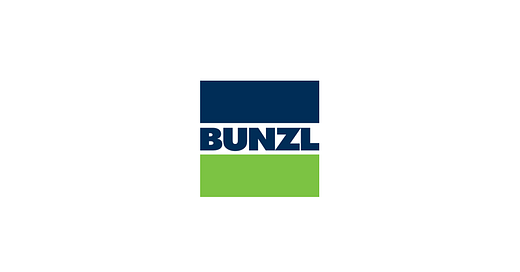Bunzl: Never a Real Growth Stock, Not Yet a Value Stock
Initiation of Coverage (BNZL LN) (Neutral): Why we don’t like this supposed long-term compounder, even at less than 13x P/E.
Highlights
At 2,340p, shares back to 2021 levels; FCF Yield ~7%, 3.2% Dividend Yield.
Some see Bunzl as a compounder; we believe it has a weak business.
Growth was helped by M&A and FX; underlying growth is low-single-digits.
Pricing is weak, customer losses often, some margins falling pre-COVID.
Own brands, cost cuts only temporary fixes; the latter backfired in 2025.
Introduction
We initiate a Neutral rating on Bunzl, a U.K.-listed global B2B distributor with a market capitalization of £7.9bn ($10.2bn). Bunzl shares fell 25.6% on April 16 after a profit warning, and remain at levels last seen in 2021:
Bunzl Share Price (Last 5 Years)
Source: Google Finance (04-Jul-25).
Bunzl has been described by some fund managers as a long-term compounder, and Adjusted EPS had grown at 8.5% annually on average during 2014-24. At 2,340p, valuation headlines look attractive, with a 12.1x P/E and a 7.3% Free Cash Flow (“FCF”) Yield relative to 2024 financials, as well as a Dividend Yield of 3.2%.
We disagree. We have long believed Bunzl’s historic reputation as a “growth” stock to be exaggerated and, while now much cheaper, it is not yet a “value” stock where we can overlook the mediocre quality of the underlying business.
(The rest of this article is for paid subscribers only, but costs just $10 to unlock; a free sample of our research is here.)




